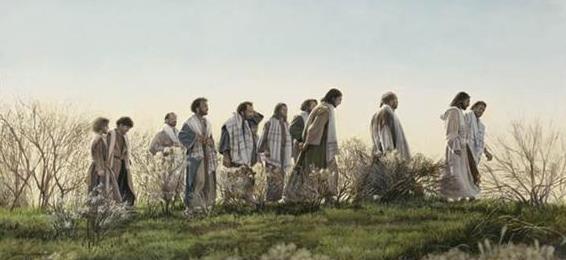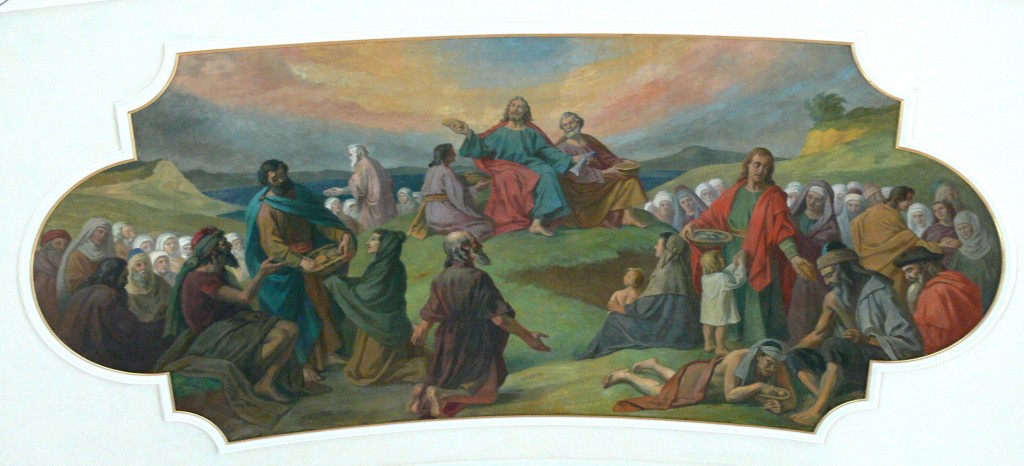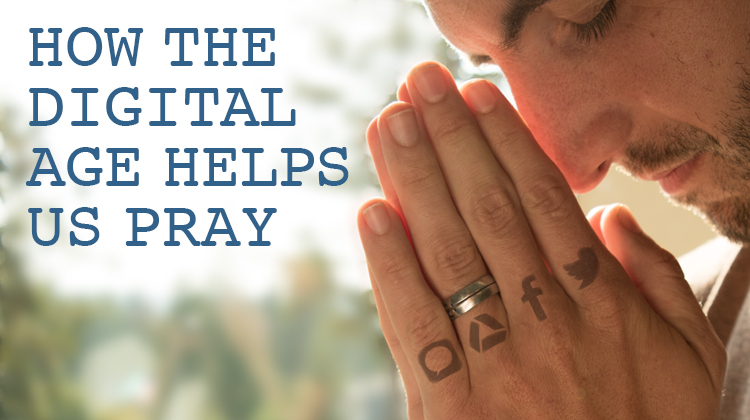Here is part 6 of an 8-part essay by Dr. Gary Deddo titled “The Christian life and our participation in Christ’s continuingministry.” To read other parts, click on a number: 1, 2, 3, 4, 5, 7, 8. For all 8 parts combined in one article, click here.

Recap of part 5
In part 5 we examined the story of Jesus and the feeding of the 5,000 and how that is a model of our participating with Christ in his ministry. In that story, we see the original disciples moved to action, giving rise to a related, crucial question: How do we motivate Christians to active participation in ministry with Jesus?
Preaching, teaching and counseling in participation with Christ
Ironically, having understood something of our participation in the ongoing ministry of Jesus, in turning to the related topics of preaching, teaching and counseling, we can easily revert to addressing people in ways that ignore the reality of our union and participation with Jesus. When we focus on our own obedience, we are in the habit of thinking that our individual will is the key to our behavior and actions. If something is going to get done, then we tend to depend on one of two things: 1) the strength of our own wills, or 2) the effectiveness of our native or learned skills, and their deployment in the programs, plans, techniques or formulas available. But if we lack both these, we may simply conclude that we have no responsibility at all. It must be someone else’s calling.
How do we properly call people to join us in the Christian life as communion, fellowship, and partnership with Christ?
First, let’s consider how all of Scripture is structured as it invites us to participate. As the Torrance brothers reminded us so often, all the commands of God are built on the premise of the unconditional covenant promises of God. All obedience is moved by faith in the character of God. “I will be their God, and they shall be my people” is the foundational refrain throughout the Old Testament (see Jeremiah 31:33, Genesis 17:8 and Exodus 6:7). God made a unilateral covenant with Abraham: “I will bless you… in you all the families of the earth shall be blessed” (Genesis 12:2-3). That covenant is renewed throughout Israel’s history. It was not, Paul reminds us, until 430 years after God made his covenant with the people who were to be a light to all the nations, that God provided them with the law (Galatians 3:17). The law falls within the circle of the unconditional promise of blessing.
Notice how the Ten Commandments unfold. They were given after the great Exodus of Israel from slavery under the Egyptians. Then, in Exodus 20:2, we find a theological preface to those holy obligations: “I am the LORD your God who brought you out of the land of Egypt!” Then the commands follow as a result of this saving work. We could insert a “so” or “therefore” before each one. “I graciously brought you out of Egypt, so you shall have no other gods before me. So “you shall not take the name of the LORD your God in vain.” So, “Remember the Sabbath day, to keep it holy.” So, “you shall not murder…commit adultery…steal….covet.”
That theological preface calls all Israel, and us, first to remember who God is and who we are in relationship to him. It does not first address our wills or set up conditions. It announces the unconditioned, good, gracious and faithful character of God. The stipulations of obedience are built on that foundation. From our New Testament vantage point, God’s own faithfulness is further demonstrated in the fulfillment of that promise. In Jesus Christ, God has become our God and we have become his people in an unimaginably intimate way. We became united to Christ who lived, died, was raised and ascended for us that we might share in his divine life. All our obedience then, is meant to follow the same pattern. Trusting in God to be true to his character provides the foundation for all obedience, for behind the promises made to us stands the Great Promise Maker and Promise Keeper. It is this God who then subsequently calls us to a life of obedience in relationship to him.
James Torrance, in full harmony with his older brother Thomas, used to point out that all the imperatives of Scripture are founded on the unconditional indicatives of grace. Obedience is not a method to cause God to be gracious to us. No. God’s unconditional grace brings with it a call for our unconditional obedience. The imperatives (commands) point out obligations that come after grace, not the conditions that have to come before grace. The imperatives of our obedience describe the shape of our participation in the covenant relations in which we live and move and have our being. They show us the direction of the grain of relationship so that we don’t get splinters.
But are there consequences for disobedience? Yes, there are. When we move against the grain of our relationship with God, we won’t enjoy the relationship and its benefits. In fact, we experience negative consequences. We cannot receive the benefits when we fail to trust in God and participate in the life he has provided for us. Our failure, however, does not negate the unconditioned grace of God. Our disobedience has no power to undo what Christ has done. We cannot change the grain of God’s character and decision for us in Jesus Christ. We can live in denial, we can close our eyes and cover our faces at noonday and say the sun is not shining, but our denial has no power to create a counter-truth and counter-reality.
The pressure to preach sanctification by works
If faith in our gracious union with Christ is the foundation for all our obedience, then how do we build on it? Do we merely yell more loudly what God wants his people to do? Do we give endless advice? Do we perpetually offer as the key to effective Christian life—new programs, new methods, new understandings, improved seminars and conferences? Do we change from plan A of preaching the unconditioned grace of God, to plan B and threaten people with a subsequent conditional grace of God? Do we preach as if God were finished with his part of the plan so now the rest of what God wants done is all up to us, as if he had no further plans—so that, if we fail, then God’s ultimate plan fails? Do we preach grace for salvation but works for a life of obedience?
I’m afraid we often do resort to these tactics. Despite the pattern of biblical teaching that begins with God and his faithfulness, we feel the pressure to preach and teach and motivate folks to obedience by addressing the naked will with raw commandments. We can be tempted to speak as if we are God’s slaves and as if God depends on us, as if God is at a distance, and ministry is really up to us, as if God’s grace merely establishes a potential that we, if we are able, realize and actualize and make true by our efforts.
But this is not how Jesus or the apostle Paul addressed the “problem of the Christian life.” For if all the imperatives of Scripture are founded on the unconditioned indicatives of grace and the character of God represented by them, then when obedience is not forthcoming, we must go back and strengthen the foundations and not attempt to find another one. We must go back to preaching and teaching and discovering the character and heart and promises of God, for everything that we are called to do mirrors what God is always and continually doing for us and in us on the basis of the vicarious ascended humanity of Christ and our union with him. Obedience is built on trust—not trying.
Preaching the indicatives of grace as the basis for the imperatives of grace
If we are intent on seeing people more faithful to Christ, we must first show the faithfulness of Christ to them, for their own faithfulness can only be a participation in the faithfulness of Christ. If we want folks to be forgiving, then the basis for that is the announcement of God’s forgiveness for us. If we see that we need to be generous, then we need to hear of God’s great generosity to us and even to the unjust. If we are concerned that people do not seem to care for the lost, then we need to be reminded that Jesus is the one true Apostle sent to seek and to save the lost (Luke 19:10) and remember—that includes us! He is still drawing people to himself, and still sending us to participate in his mission to the lost.
If we announce we should be more compassionate towards the poor, then at the same time we need to hear of God’s own heart towards the poor. We need to see his provision for the orphan, widow and foreigner and even ourselves, as we recognize our own spiritual poverty. If we are concerned for racial reconciliation, then we require being continually reminded that God in Christ has already recreated us into being one new humanity (Ephesians 2:15). We are reconciled to God and to each other in Christ. We can count on that work having already taken place, rather than see ourselves as given the task of realizing an ideal that God has merely put before us and is waiting for us to make it happen. Then, all of our efforts in this direction will be moved by faith in the completed work of Christ and the ongoing ministry to make the fruits of that reconciliation visible. All our activity will be generated by faith in God. Paul referred to this as “the obedience of faith.” This is what he declared and it is what oriented and motivated his ministry from beginning to end (see Romans 1:5 and Romans 16:26). This is the only kind of obedience that Paul is interested in, for it alone reflects truly who God is in Jesus Christ.






